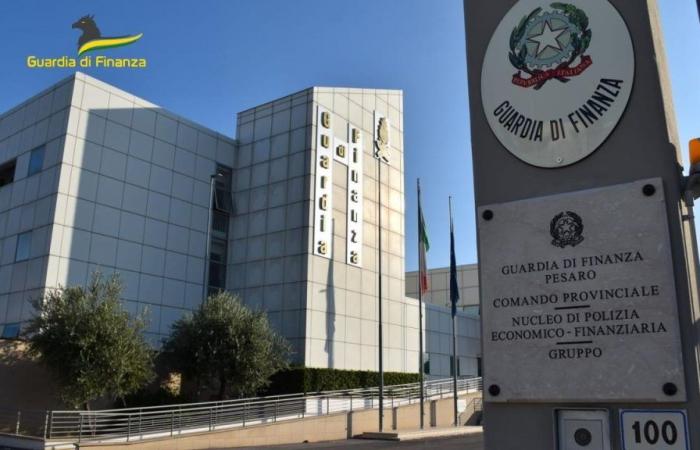Pesaro, 18 June 2024 – Pesaro company at the center of the operation of the economic-financial police unit of Pesaro called “The carousel has stopped.” The yellow flames executed 3 precautionary custody orders personal data against the same number of suspects, a precautionary disqualification measure against a fourth man and seizures quotes for an amount of more than that 490 thousand euros. The orders and decrees were issued by the Judge for Preliminary Investigations of the Court of Pesaro, at the request of the European Public Prosecutor’s Office (Eppo) of Bologna. The activity also allowed us to block illicit requests for public fundingprovided with funds from the Pnrr (National Recovery and Resilience Plan), for over 15 million euroswhich would have been allocated by Simest (a company owned by Cassa Depositi e Prestiti).
It all started with an investigation into one Srl located in Pesarobeneficiary of subsidized financing and guaranteed by the State andEuropean Union attributable to a subject who appeared to be director and sole shareholder.
The hypothesis put forward by the investigators who investigated the Pesaro company was that of aggravated fraud to obtain public funds. Subsequent investigations then made it possible to identify further similar cases of public benefits requested and partly obtained in favor of other companies with registered offices at Ravenna and Bolzano. They would be 15 cases of aggravated fraud have been documented concerning numerous requests for financing to support Italian companies in their internationalization process, in relation to which, thanks to the active collaboration of SIMEST, the disbursement was prevented for a sum exceeding 15 million euros.
The modus operandi concocted by the suspects, according to the investigators, was so well thought out that it even managed to overcome the checks carried out by the granting bodies, thus creating a “best practices” of the scam.
According to the prosecution’s hypothesis, the suspects created or took over joint-stock companies which, in fact, were empty boxes, devoid of any commercial or financial operation, with registered offices and local units that were totally non-existent or attributable to mere corporate domiciliation services, kept alive specifically to defraud the bodies responsible for disbursing public money. The companies used, in fact, did not have never submitted the required tax returnssome even for over 20 yearsbut the suspects took care to create “on paper” at least two totally false financial statements showing revenues in the millions, depositing them electronically at the Companies Registry, thus committing, according to the prosecution, the crime of false corporate communications.
They then presented Simest with a series of requests for financing, partly also non-repayable, guaranteed by the State or with European funds, motivating them with the desire to internationalize the company, develop electronic commerce or to enter foreign markets. They therefore managed, according to the investigators, to mislead the manager of the resources, thus obtaining an initial disbursement of the financing which was immediately diverted from the company current accounts through systematic cash withdrawals at automatic banking machines as well as through bank transfers also in favor of others subjects (natural persons and companies) outside the corporate structure.
Further investigations were instrumental in identifying one “technical direction” which is believed to have been carried out by an accountant that he would have created false millionaire balance sheets, and would have done his utmost to transmit and deposit them to the Companies Register and to alter both the contracts with the suppliers (who were also non-existent and made available, according to the investigators’ hypothesis , from the same accountant), and the bank statements preparatory to obtaining the subsequent tranches of money. The other three suspects have always officially had no income. The searches of homes and offices were mainly carried out in the province of Salerno. They were conducted with the support of soldiers from the Salerno Group and a canine unit specialized in finding money, the “cash dogs”, made available by the Guardia di Finanza Company of Capodichino.






